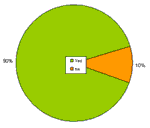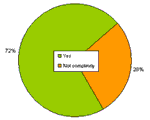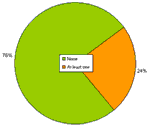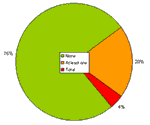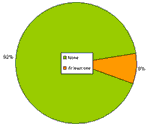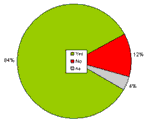
HOME PAGE >
Your answers to the questionnaire
First analytical summary
![]() by Hervé Maillot, Allié. France
, 11 May 2005
by Hervé Maillot, Allié. France
, 11 May 2005
This first analytical summary attempts to produce a qualitative reflection of the answers from the first 25 participants in the consultation.
For an enormous majority (see quantitative diagrams presented on the Analytical Summaries page), the idea of the Alliance and the Constituent Charter project has been favorably to enthusiastically received, by Allies who were witnesses or actors in the first stage of the Alliance, as well as by persons not yet committed to the Alliance. The same is true for the working procedures and the calendar.
Otherwise, a few answers express some disagreement or criticism of the Charter text, the working procedures, and the calendar; some participants express completely opposite points of view; some participants manifest a few doubts or their need for more details on different aspects of the proposal.
The text of the Charter is sometimes seen as too theoretical and too general. This is the impression of participants wishing that a few important objectives be given distinct priority in the Charter or that well-identified events or deadlines be highlighted in the calendar. This series of answers has produced opposite points of view. One of the oppositions has to do with the influence of the FPH on the definition of the working rules and the future of the Alliance: some see the FPH as too overbearing; others encourage it, on the contrary, to follow the path that it wishes to follow. It should be observed that a non-negligible number of participants give the impression that they are primarily addressing the FPH. There is a second opposition regarding the scale at which the Charter project is placed: while some doubt that the global approach of the Alliance meets the present challenges, feel that the Charter is Utopian, or assert that what is important is to work locally, others affirm their determination to invent a model of global society.
A third opposition lies in the perception of the Alliance as a network. This network, some declare, should be open to all, provided that a common identity is shared. Others, instead, think it should be more exclusive to significantly experienced and committed organizations. Some of the answers show that a need is felt to specify the roles, how things work, and how members are chosen for the different groups and committees set up for the facilitation, follow-up, and management of the Alliance.
Finally, a few answers express vigilance and a need for clarity on some of the ethical aspects. Vigilance on the democratic nature of the decision processes within the Alliance; need to clarify the method (how) and the means (who) for restoring the collective memory.
QUANTITATIVE GRAPHS
![]()
|
If you haven't done so, we strongly encourage you to first send us your answers to the questionnaire.
TRANSLATION
- français
- Español
Other analytical summaries
 Second analytical summary |20 May 2005 |
Second analytical summary |20 May 2005 |
 Third Analytical Summary |8 June 2005 |
Third Analytical Summary |8 June 2005 |
 Fourth Analytical Summary |4 July 2005 |
Fourth Analytical Summary |4 July 2005 |
 Fifth Analytical Summary |10 August 2005 |
Fifth Analytical Summary |10 August 2005 |
 Sixth Analytical Summary |7 September 2005 |
Sixth Analytical Summary |7 September 2005 |
 Consultation on the Constituent Charter Project for the Alliance for a Responsible, Plural and United World: Final Report |6 December 2005 |
Consultation on the Constituent Charter Project for the Alliance for a Responsible, Plural and United World: Final Report |6 December 2005 |
- Alliance for a Responsible, Plural and United World -
- Charles Léopold Mayer Foundation for the Progress of Humankind -
